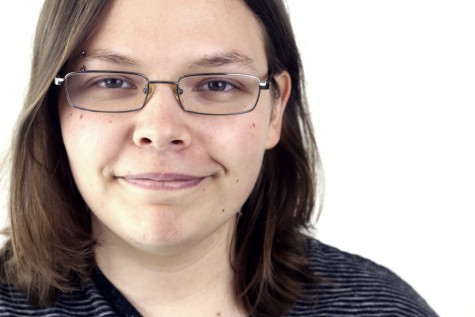Faculty Senate to seek opinions on athletic spending
April 8, 2015
The Faculty Senate voted 9-2 Tuesday to send a referendum asking faculty if they would support requiring intercollegiate athletics to spend within its budget each year and have a transparent financial process.
If faculty members agree, the senate will send a more detailed resolution to the administration with suggestions for improvement in the oversight and accountability of the athletics budget.
In previous senate meetings this semester, the senate questioned both Jim Davis, the intercollegiate athletic board director, and Dan Nadler, the vice president for student affairs, about the process of reviewing the budget and why the campus found out suddenly about the athletic department spending $1 million more than its allocated budget.
Michael Mulvaney, a recreation administration professor, suggested seeking 20 percent of faculty to petition to add the question to the ballot, though the senate voted at its last meeting that it had the implied power to send referendums on its own accord.
“We’ve been talking about that for the past month that we have that implied, but I just don’t know if we want to get in the habit of doing that unless there’s some very unique circumstances,” he said.
Mulvaney said the senate would then have to justify why some faculty-suggested referendums were sent and others were not, while getting faculty to petition for the referendum would raise more awareness of the issue in the process.
However, other senate members thought the athletic budget issue was important enough to warrant inclusion on its regular semester ballot.
Jim Conwell, a physics professor, said the senate should have enough discernment to decide what issues should be presented; he added that the 20 percent petition rule was only put into place to keep the senate in check so it could not ignore requests for referendums.
“One way the administration can prevent us from having shared governance is not to have the information get out,” Conwell said. “If we are kept treated like mushrooms kept in the dark and fed whatever mushrooms are fed, then we do not have any opinion on shared governance.”
Conwell also disagreed with Mulvaney that the issue was not time sensitive.
“If we think actually that an abuse has gone on, and that people are just going to try to wait us out and do it again, then we have to send a message,” Conwell said.
Minh Dao, an economics professor, agreed that putting the question on the ballot is consistent with the role of shared governance.
“If this would happen in the business or the real world, well, Nadler would have been fired,” Dao said. “There is no question about that, and we let it go for many years. That is just unacceptable.”
Jon Oliver, a kinesiology and sports studies professor, said he thinks the members of the intercollegiate athletic board may not be prepared to ask tough questions about the budget and have a neutral, critical conversation about it.
“I’m serving on IAB this school year, and I honestly get the sense that Jim Davis sat in here and deflected comments about the budget as if he wasn’t involved with the review process, and then the faculty member sent (Internal Governing Policy #84) where it clearly states the IAB is kind of first check point on budgetary review,” Oliver said.
He also said members should be looking more to see how intercollegiate athletic boards at other universities operate, as it has done in a recent meeting.
“Almost everyone if not everyone of them had fiscal review and integrity as a listed function, but literally at our meeting this week, our (vice president) for student affairs proposed to take that out of the duties of the IAB,” Oliver said.
Oliver added that Nadler was the interim athletic director for fiscal year 2013 – 14, and between the responsibilities of the Council on University Planning and Budget and the intercollegiate athletic board, neither seems to have been reviewing the budget.
“I think there’s an assumption that both parties have been doing it, and what has happened, we’re right through this large divide,” Oliver said. “No one is actually doing it because there’s an assumption that the other party is doing it.”
The senate also heard an update from Andrew McNitt, who is working on a committee to create a faculty and staff funded endowment for Community Commitment to Excellence Scholarships.
He said the scholarships would complement existing Commitment to Excellence Scholarships, and the hope is that they would be more stable because they would not rely on appropriated funds.
“It’s time really for the university to try and initiate efforts to take charge of our own destiny,” McNitt said. “Waiting for the governor or the legislature to do whatever it is they intend to do to us is not terribly profitable.”
He said the committee is looking for leaders on campus to help campaign for at least 125 faculty or staff members to donate $200 to earn the $25,000 needed to start an endowment.
Stephanie Markham can be reached at 581-2812 or [email protected].



















































